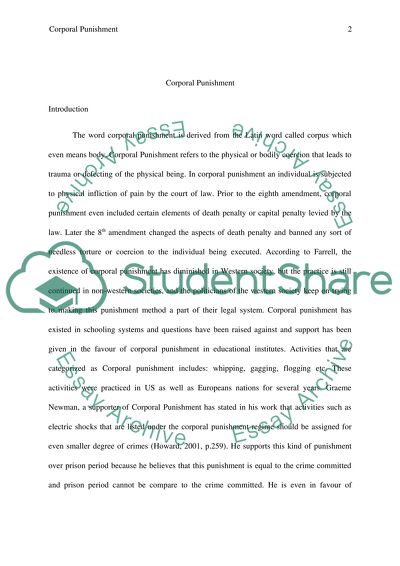Cite this document
(“Issues of Corporal Punishment Research Paper Example | Topics and Well Written Essays - 1500 words”, n.d.)
Retrieved from https://studentshare.org/law/1454256-issues-of-corporal-punishment
Retrieved from https://studentshare.org/law/1454256-issues-of-corporal-punishment
(Issues of Corporal Punishment Research Paper Example | Topics and Well Written Essays - 1500 Words)
https://studentshare.org/law/1454256-issues-of-corporal-punishment.
https://studentshare.org/law/1454256-issues-of-corporal-punishment.
“Issues of Corporal Punishment Research Paper Example | Topics and Well Written Essays - 1500 Words”, n.d. https://studentshare.org/law/1454256-issues-of-corporal-punishment.


